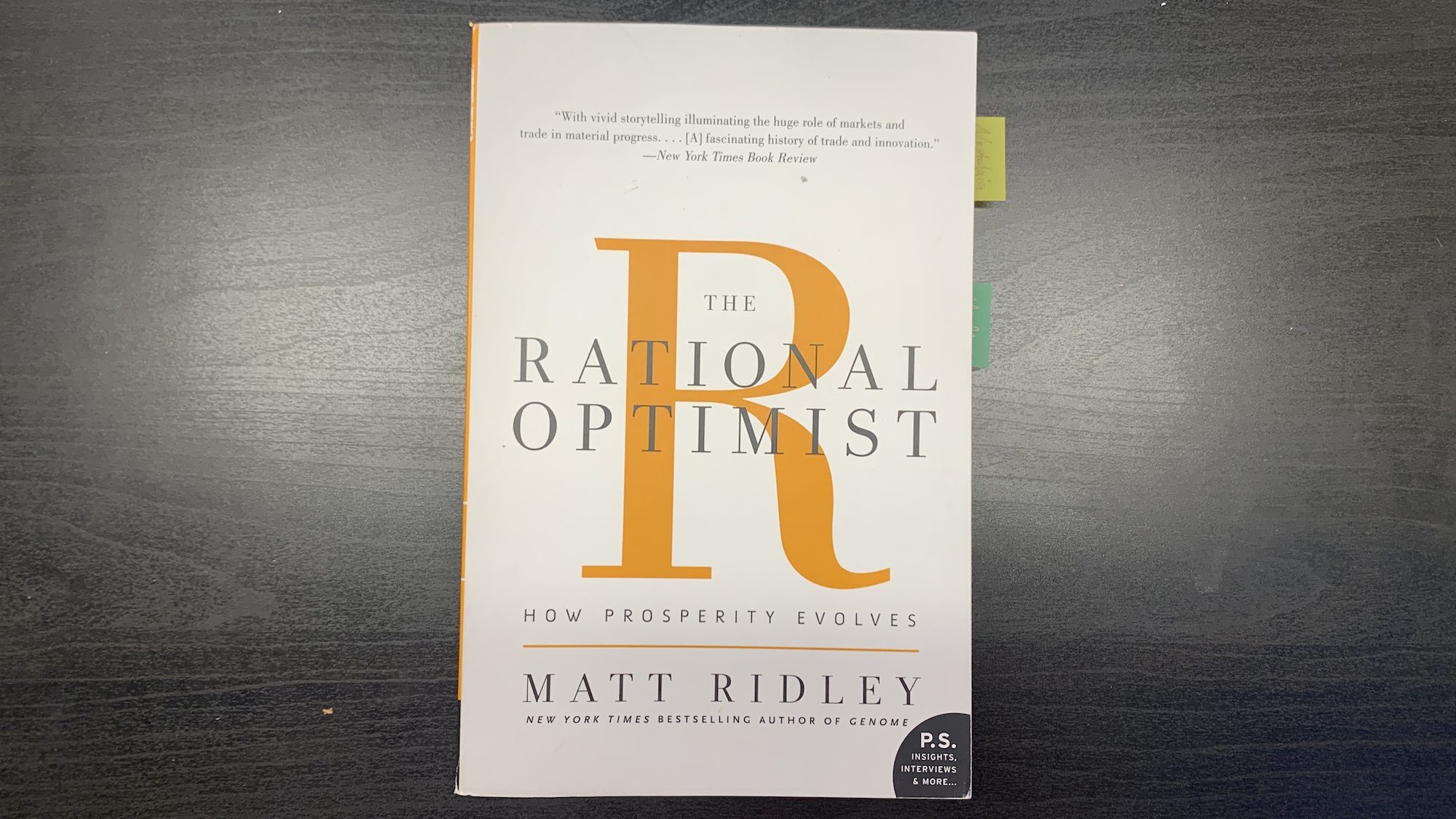
19 Nov The Rational Optimist by Matt Ridley – My Underlines
The Rational Optimist, by Matt Ridley
The was a transformative book for me. I first heard of the author by Naval Ravikant, a Silicon Valley venture capitalist-turned philosopher whom I admire. If you haven’t read any of Matt Ridley’s writings, I suggest starting here. This is probably his most accessible work. After finishing it, I went on Amazon and bought several additional copies for gifts (that’s how important I think it is).
Underlines:
I repeat: firms are temporary aggregations of people to help them do their producing in such a way as to help others do their consuming. p.115
But note here that a country’s economic freedom predicts its prosperity better than its mineral wealth, education system or infrastructure do. In a sample of 127 countries, the sixty-three with the higher economic freedom had more than four times the income per capita and nearly twice the growth rate of the countries that did not. p. 117
It was fossil fuels that eventually made slavery–along with animal power, and wood, wind and water–uneconomic. P.214
‘History supports this truth,’ writes the economist Don Boudreaux: ‘Capitalism exterminated slavery.’ p.214
The reason that the poverty of early industrial England strikes us so forcibly is that this was the first time writers and politicians took notice of it and took exception to it, not because it had not existed before. p. 220
As the economist Eamonn Butler puts it, the ‘perfect market is not just an abstraction; it’s plain daft…Whenever you see the word equilibrium in a textbook, blot it out.’
The possibility of new knowledge makes the steady state impossible. Somewhere somebody will have a new idea and that idea will enable him to invent a new combination of atoms both to create and to exploit imperfections in the market. P.250
As Friedrich Hayek argued, knowledge is dispersed throughout society, because each person has a special perspective. Knowledge can never be gathered together in one place. It is collective, not individual. Yet the failure of any particular market to match the perfect market no more constitutes ‘market failure’ than the failure of a particular marriage to match the perfect marriage constitutes ‘marriage failure.’ p. 250
Ideas are having sex with other ideas from all over the planet with ever-increasing promiscuity. P.270
As Herb Stein once said, ‘If something cannot go on forever, then it will not.’ p.281
Even back in the golden age itself, in the eighth century BC, the poet Hesiod was nostalgic for a lost golden age when people ‘dwelt in ease and peace upon their lands with many good things.’ p. 292
As usual, optimism gets a bad press in this debate. Optimists are dismissed as fools, pessimists as sages, by a media that likes to be spoon-fed on scary press releases. That does not make the optimists right, but the poor track record of pessimists should at least give one pause. p.341
I have argued that although such optimism is distinctly unfashionable, history suggests it is actually a more realistic attitude than apocalyptic pessimism. ‘It is the long ascent of the past that gives the lie to our despair,’ said H.G. Wells. P. 352
It is precisely because there is still far more suffering and scarcity in the world than I or anybody else with a heart would wish that ambitious optimism is morally mandatory. P.353
The bottom-up world is to be the great theme of this century. P.355
History repeats itself as a spiral not a circle, Wilder implied, with an ever-growing capacity for both good and bad, payed out through unchanging individual character. P.359

No Comments